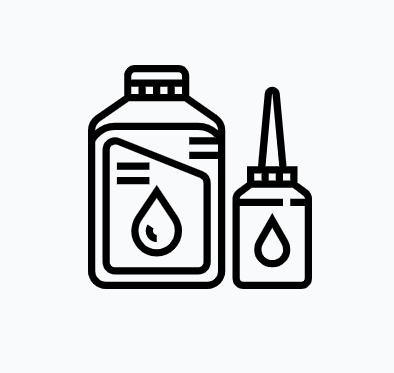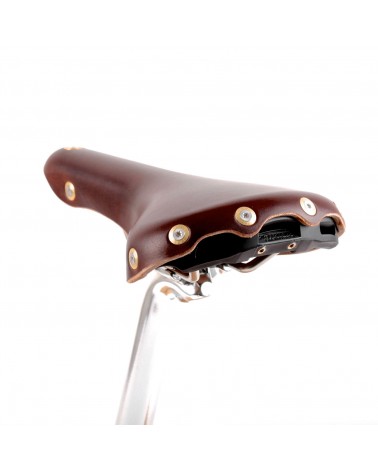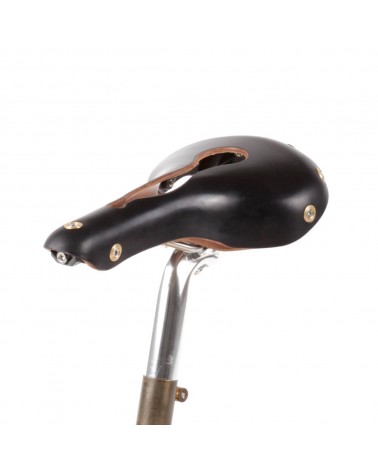Free shipping: To make the most of the end-of-year period, we are offering free shipping on all our products available in stock on our website for purchases of €79 or more from December 08, 2025 to December 31, 2025. See condition here .
With Product Finder Assistant you can easily find what you want
Leather Bike Saddles
Notify me when Back In Stock
We'll slide into your inbox when the product is back in stock.

Remember to consult the manual before greasing your saddle!
To know
In order to maintain your leather bicycle saddle, we invite you to download our instruction manual (FR/EN) which contains the essential advice to keep your saddle in shape.
Also, in order to maintain leather softness and aspect of the underside of your saddle (flesh side), we propose a Wax to apply without excess once a year.
The Leather Conditioner comes in complement to restore and maintain a high shine of the top side of the leather (grain) of your saddle.
Finally, we also cut and sewn in our workshop simple or integral saddle cover which is ideal when you ride in heavy rain without fenders (mudguards).
A return is possible if the saddle is not marked and is still in its original box.
To do this, we recommend that you mount the saddle on your bike and only perform a static test while riding your bike. We invite you to put on your shorts to proceed with the test in order to avoid any risk of scratching the leather with a button or a rivet.
This will allow you to see if the shape seems to fit or if it is a definite no. Still in shorts, it is possible to do some cranking on the road to get a feel for the bike, but here again, the utmost caution is required.
As you can see, if the leather shows any trace, mark or scratch, we will not be able to take it back.
The design of our leather saddles combines a traditional material, leather, with today's materials: stainless steel, titanium and synthetic materials chosen with care. Each of our saddles are made in our workshops in Burgundy.
Click to watch a video of how our leather bike saddles are made.
In our workshop we manufacture two types of bicycle saddles:
- "Open leather" or so-called open bike saddle (with a hole or slit in the middle).
- A "full leather" or so-called closed (or full) bicycle saddle.
The choice between an open model (with a hole in the middle) and a closed model is always complex because it depends on many parameters. Each saddle has its advantages and disadvantages.
For people who are prone to this problem, open saddles will reduce crushing of the perineum.
In addition, open leather will be comfortable almost immediately but will probably have a shorter life span than closed leather. Indeed, the opening creates a fragility
Closed leather will take longer to break in but will ultimately be more durable (we recently changed a leather that had travelled 150,000 kilometres!). This is all theory.
In practice, it also depends on the weight of the person, the type of pedalling, the maintenance, the use: weather (rain with or without mudguards), perspiration...
Naturally, we would recommend a closed model on a travel bike for its longer life.
It is possible that color transfer may occur due to rubbing against clothing worn while pedaling. This is why we recommend avoiding light-colored clothing. This is because our colored saddles are dyed and the dye is not fixed.
Leather absorbs dye and thus retains its charm. The use of paint would mask the various marks testifying to the life of the animal.
Depending on the leather, a saddle may curve more or less quickly depending on different parameters such as position on the saddle, pedaling frequency, user weight, etc.
When you notice that the leather begins to relax (feeling soft) you must quickly tighten your saddle.
We recommend that you regularly tighten your saddle in a progressive manner (1/4 turn by 1/4 turn clockwise for all our saddles except city saddles for which the rotation is done in an anti-clockwise direction) to obtain the sensation adequate.
Be careful, don't wait until it is too late because leather that is too soft will be impossible to tighten and you will have to purchase a replacement leather.

















































